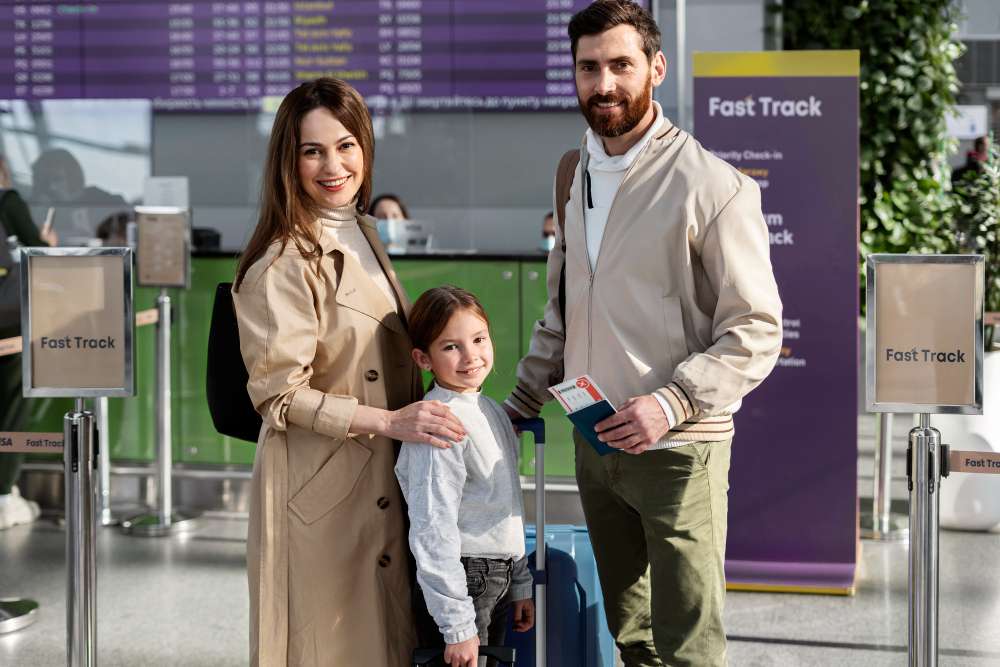Introduction To Family Visit Visas
Understanding Family Visit Visas
A family visit visa serves as a temporary permit allowing individuals to visit their relatives residing in a different country. It facilitates family reunification and fosters cultural exchange among family members. Such visas are typically granted for a limited duration, enabling the visitor to stay for a specified period and partake in familial activities.

Eligibility Criteria For Family Visit Visas
Relationship Requirements
Establishing a genuine relationship with the inviting relative is a primary eligibility criterion for a family visit visa. This relationship may include spouses, parents, children, siblings, or grandparents. Providing ample evidence of family ties, such as birth certificates or marriage documents, is essential.
Financial Requirements
Applicants must demonstrate their financial capacity to support themselves during their visit in the host country. This often involves presenting bank statements, proof of employment, or sponsorship letters from the inviting relative, confirming their ability to cover the visitor’s expenses.
Intention To Return
Authorities scrutinize applicants to ensure they have a genuine intention to return to their home country after the visit. This may entail providing evidence of ties to the home country, such as employment contracts, property ownership, or family obligations.
Application Process For Family Visit Visas
Documentation
Applicants are required to submit a set of documents supporting their visa application. These documents may include passport copies, visa-sized photos, proof of relationship with the inviting relative, financial statements, and a letter of invitation from the sponsoring relative.
Application Forms
Accurately and honestly completing the visa application forms is crucial. Any discrepancies or misleading information may result in the rejection of the visa application. Applicants should pay close attention to the instructions provided and seek clarification if needed.
Fees And Processing Time
Visa application fees vary depending on the host country and the type of visa being applied for. It is essential to check the current fee schedule and ensure timely payment to avoid processing delays. The processing time for family visit visas also varies, ranging from a few weeks to several months, depending on the volume of applications and the efficiency of immigration authorities.
Tips For An Effective Application
Providing Genuine Information
Honesty and transparency are crucial when completing the visa application forms. Providing genuine information and supporting documentation increases the chances of a successful application and minimizes the risk of rejection.
Accurate Form Completion
Applicants should double-check all information provided on the application forms to ensure accuracy and consistency. Any errors or omissions could raise red flags during the review process and lead to delays or rejection.
Seeking Professional Assistance If Necessary
In cases where the visa application process seems complex or daunting, seeking professional assistance from immigration consultants or legal experts can be beneficial. These professionals can provide guidance, review documents, and offer valuable insights to enhance the application’s chances of approval.
Understanding Visa Limitations And Duration
Family visit visas typically come with specific restrictions and conditions. It is essential for visitors to learn about the details of their visa, including the duration of stay, any travel restrictions, and conditions for extension, if applicable.

What To Do After Obtaining The Visa
Once the family visit visa is granted, visitors should start planning their travel arrangements promptly. This includes booking flights, arranging accommodation, and ensuring they have the necessary travel documents and insurance coverage. Upon arrival in the host country, visitors should be prepared to undergo immigration procedures, including visa control and customs clearance. It is advisable to carry all necessary documents, including the visa approval letter, passport, and supporting paperwork, to facilitate a smooth entry process.
Dealing With Visa Rejection
In the unfortunate event of a visa rejection, applicants have the option to appeal the decision. It is essential to carefully review the reasons for rejection provided by the immigration authorities and address any concerns or deficiencies in the appeal letter. Seeking legal advice or consulting immigration experts can help navigate the appeal process effectively.
Conclusion
Applying for a family visit visa can be a rewarding yet intricate process. By understanding the eligibility criteria, adhering to the application guidelines, and staying informed about visa regulations, individuals can maximize their chances of a successful visa application and enjoy meaningful moments with their loved ones abroad.


